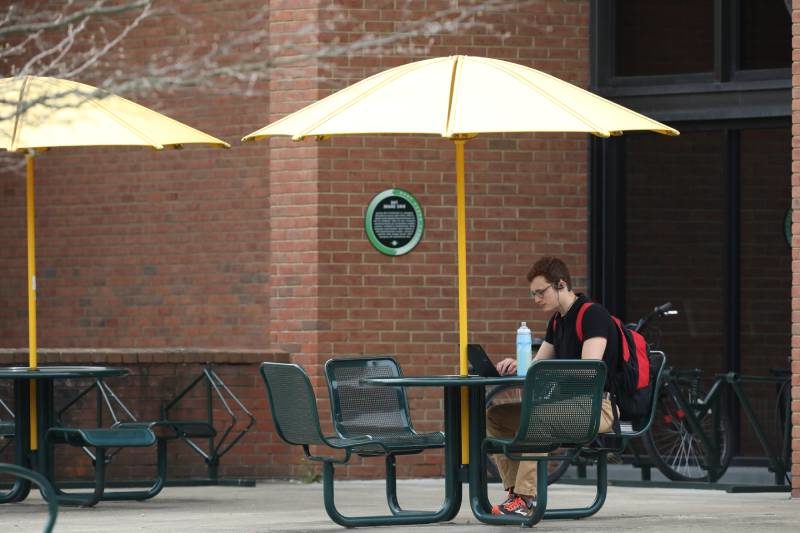
Professor Beth Choate challenged her Allegheny College students to tackle the global issue of plastic waste at a local level. Knowing that 37 million tons of plastic waste are produced annually in the U.S., Choate encouraged students in her Research Methods class to investigate how often — and why — Allegheny students turned to single-use water bottles instead of a refillable option.
The research would ultimately help spur the installation of more than 20 filtered water refill stations on campus. And follow-up surveys have shown a dramatic decrease in single-use water bottle consumption by Allegheny students between 2014 and 2019.
“It felt like the College has really created a culture where using a reusable bottle is what you want to do,” says Choate, an associate professor of environmental science and sustainability (ESS).
Choate, Assistant Professor of ESS Matthew Bethurem, and Stephanie Bramwell ’21, recently published an article chronicling that success in the fully open access journal Sustainability.
A large portion of the article’s research was conducted by an ESS Research Methods class in the fall of 2018. Students in the course discussed, wrote, and distributed a survey to their peers, following up on similar outreach completed in 2014. With results in hand, students analyzed the data and presented their findings in a paper.

The initial study found that convenience, taste, and health concerns each played a significant role in students’ decision to turn to single-use water bottles, Choate says. In response, the College not only added filtered water refill stations across campus but also distributed reusable water bottles to incoming students. To allay concerns, students also received information about tap water safety.
“It’s clear that these initiatives have driven a behavior change,” Bethurem says. “There is evidence to show that (disposable) bottled water use has gone down considerably among all class years.”
In addition to the 2018 follow-up study, Bethurem, Bramwell, and Choate also gauged progress through a 2019 survey of a smaller group of students.
Bethurem says that student researchers framed their work in the larger context of the pressing need to reduce plastic waste worldwide. He notes that plastic doesn’t break down easily — “once it’s there, plastic is there virtually forever” — and there are fewer options for recycling it, particularly since China stopped accepting plastic waste.
“I think the students were able to, in the class, lend some weight to that narrative and help to characterize the importance of the findings from the study,” Bethurem says.
Bethurem also sees a promising ripple effect from the research. “This wasn’t just a research exercise for the sake of an exercise,” he says. “This has the potential to have a real-world impact here on campus, but also going forward out there with all those students who are going to take that experience and that knowledge with them.”
Choate says she is particularly excited that the study was published in an open-access journal that is free for anyone to view. That availability could help open doors for other organizations to implement the lessons learned at Allegheny.
“I’d love to consider how we use this model to start thinking about reducing plastic bottle use in places that are bigger than the Allegheny campus,” she says. “We could take that fundamental knowledge of convenience and understanding why people make those decisions and then apply it to other venues. … If we make refillable bottles the most convenient option, and the least expensive option, people will use them.”
Visit the Environmental Science & Sustainability Department website to learn more about student-faculty research opportunities.


